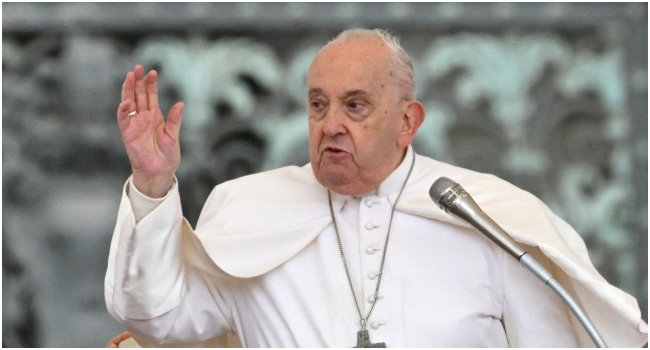Pope Francis, 87, began a significant four-nation tour on Monday, starting with Indonesia, the world’s largest Muslim-majority country, focusing on strengthening interfaith relationships.
The Pope departed from Rome and is expected to land in Jakarta on Tuesday morning, marking the first leg of a 12-day journey that includes stops in Papua New Guinea, East Timor, and Singapore.
This extensive tour, covering about 32,000 kilometers (nearly 20,000 miles), is the longest and most challenging of his 11-year tenure as the leader of the global Catholic Church, especially given his declining health. However, in recent weeks, Pope Francis has shown signs of vitality, often drawing energy from interacting with his followers.
In Indonesia, Catholics make up less than three percent of the population, around eight million people, compared to the 87 percent, or 242 million, who are Muslim. Despite their minority status, Catholics are one of six officially recognized religions in Indonesia, alongside Protestantism, Buddhism, Hinduism, and Confucianism.
On Thursday, Pope Francis is scheduled to meet with representatives from all six faiths at Istiqlal Mosque, the largest in Southeast Asia and a symbol of religious harmony. The mosque is connected to a nearby cathedral through a “tunnel of friendship,” a gesture of unity where Christians have recently taken selfies with a life-sized cutout of the Pope.
During his visit to the mosque, Pope Francis and the grand imam, Nasaruddin Umar, will sign a joint declaration addressing “dehumanization,” focusing on issues like violence, conflict, particularly affecting women and children, and environmental concerns, according to the Indonesian bishops’ conference.
Pope Francis has consistently called for global efforts to combat climate change, stressing the urgency as rising sea levels threaten Jakarta, a city grappling with severe pollution.
Security has been tightened for the Pope’s three-day visit, with over 4,000 law enforcement officers, including military, police, and the president’s security detail, ensuring safety. Jakarta has welcomed the Pope with billboards and a special commemorative stamp ordered by the government.
This marks the third papal visit to Indonesia, following those by Paul VI in 1970 and John Paul II in 1989.
The Jakarta Post, an independent newspaper, described the visit as “highly significant” for advancing interreligious dialogue both in Indonesia and globally. Despite official recognition of multiple faiths, concerns persist about growing discrimination, including against Christians, with local Catholics hoping the Pope will address these issues.
The Jakarta-based Journalists’ Union for Diversity reported eight violations of religious freedom in August alone, highlighting ongoing challenges.
Michel Chambon, a theologian and anthropologist at the National University of Singapore, noted that the Pope’s message extends beyond Indonesia’s Catholic community, aiming to emphasize the global importance of Islamic-Christian dialogue.
Pope Francis will meet with outgoing President Joko Widodo, engage with young people, diplomats, and local clergy, and preside over a mass in an 80,000-seat stadium, one of several key events during this tour, his 45th overseas trip as Pope.
Initially planned for 2020 but delayed due to the pandemic, the visit comes just three months before his 88th birthday. The Pope, who now frequently uses a wheelchair, has faced health challenges, including hernia surgery and respiratory issues. He will travel with his personal doctor and two nurses, though Vatican spokesman Matteo Bruni stated that no additional precautions are in place


